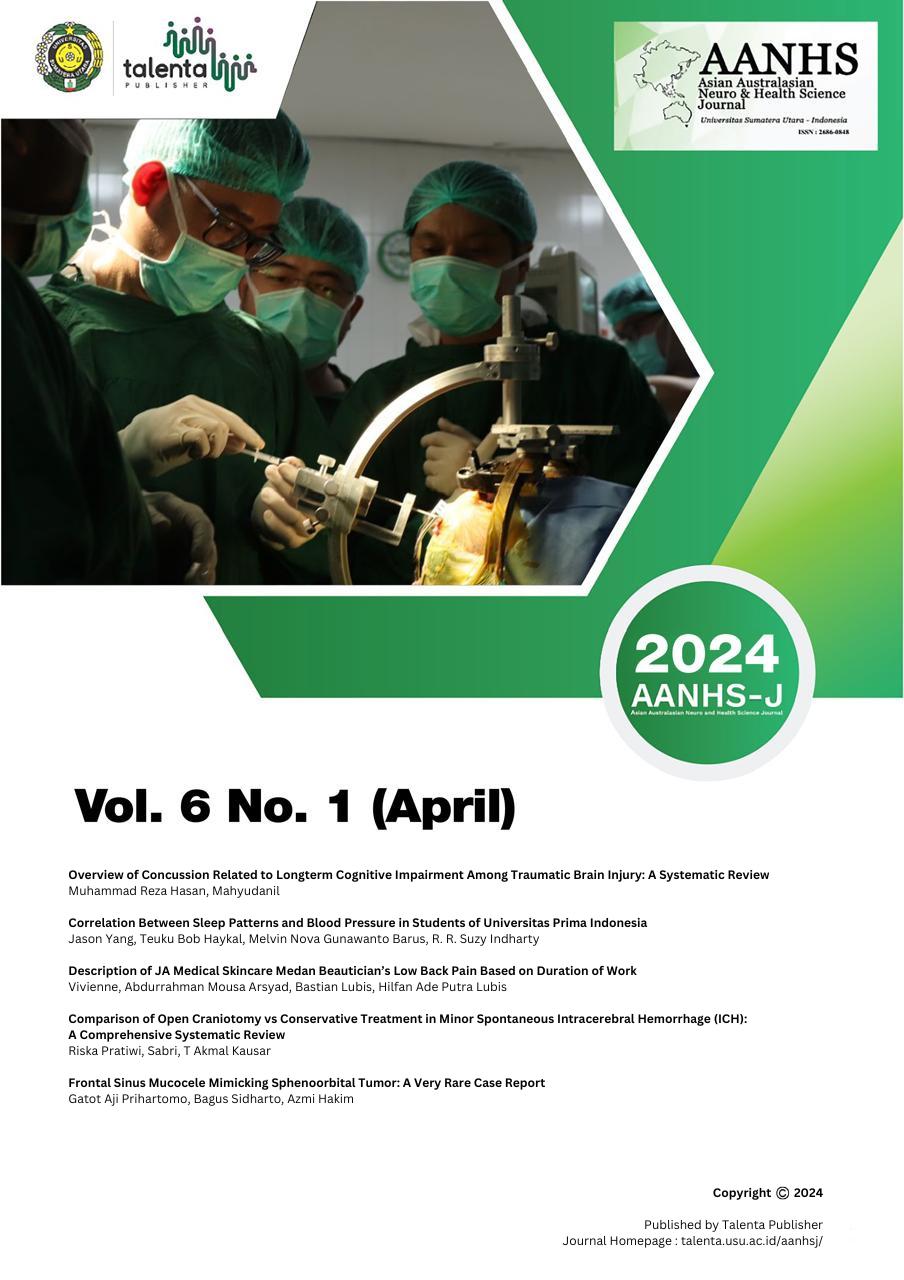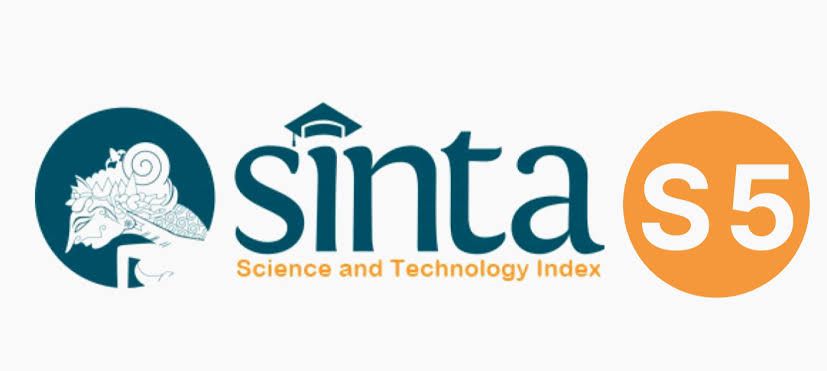Overview of Concussion Related to Long-term Cognitive Impairment Among Traumatic Brain Injury
A Systematic Review
DOI:
https://doi.org/10.32734/aanhsj.v6i1.11832Keywords:
Cognitive, Concussion, Neurotrauma, Traumatic Brain Injury, Cognitive, Concussion, Neurotrauma, Traumatic Brain InjuryAbstract
Abstract.
Background: Discovering if the cognitive decline in later life is related to concussion. This systematic review aims to summarize the research on the link between concussion and long-term cognitive damage.
Methods We offer systematic reviews that follow a standardized review methodology and are reported using the recommended reporting standards for systematic reviews and meta-analyses (PRISMA). From conception until March 2023, we conducted searches in the databases of PubMed, ScienceDirect, and British Medical Journals using the following search method.
Results: Six studies were included for further analysis, which mostly showed individuals with mild Traumatic Brain Injury (mTBI) with a GCS of 13–15 revealed that cognitive impairment is a prevalent symptom with the primary cause of traffic collision. Studies on patients with mTBI demonstrated that they performed poorer in verbal memory, attention, and executive function. It has been shown in earlier investigations that microglia may be involved in ongoing neurodegeneration. Microglia response in the subcortical regions carries out the critical information and processing of spatial learning, memory, and relaying sensory and motor signals.
Conclusion Concussions are one of the most frequent but also one of the hardest to recognize; in fact that even mild trauma has the potential to affect the brain's architecture and has no outward signs. Reduced cognitive function is one of the concussion's side effects, when cognitive impairment is correlated with a lower health-related quality of life.
Downloads
Downloads
Published
How to Cite
Issue
Section
License
Copyright (c) 2024 Asian Australasian Neuro and Health Science Journal (AANHS-J)

This work is licensed under a Creative Commons Attribution-ShareAlike 4.0 International License.
The Authors submitting a manuscript do understand that if the manuscript was accepted for publication, the copyright of the article shall be assigned to AANHS Journal.
The copyright encompasses exclusive rights to reproduce and deliver the article in all forms and media. The reproduction of any part of this journal, its storage in databases and its transmission by any form or media will be allowed only with a written permission from Asian Australasian Neuro and Health Science Journal (AANHSJ).
The Copyright Transfer Form can be downloaded here.
The Copyright form should be signed originally and sent to the Editorial Office in the form of original mail or scanned document.














